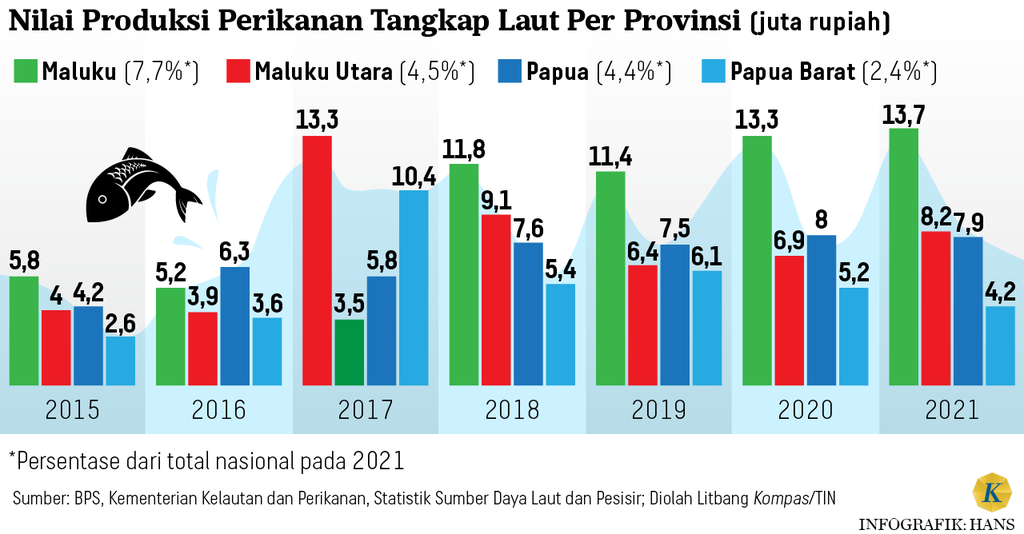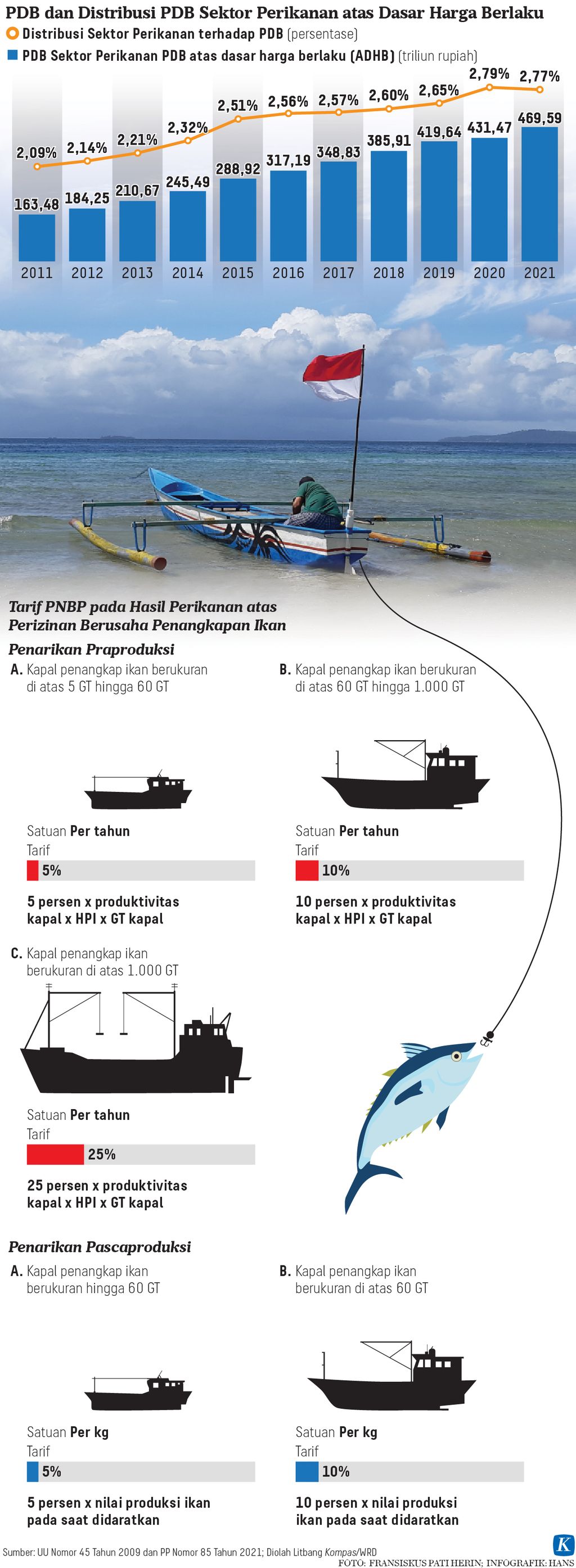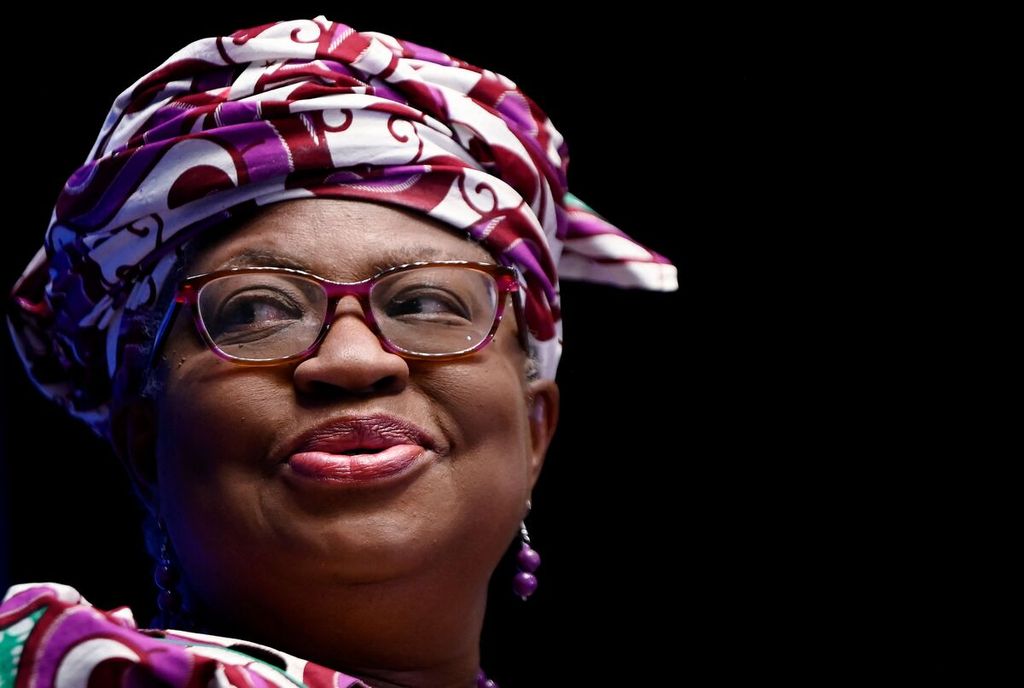JAKARTA, KOMPAS — The Indonesian group small fishermen rejects the World Trade Organization or WTO‘s proposal regarding plans to limit and prohibit fisheries subsidies for fishermen. This plan is one of the main agendas for discussions at the 13th WTO Ministerial Conference which will take place in Abu Dhabi, United Arab Emirates, 26-29 February 2024.
“If this negotiation is agreed upon, small fishermen in Indonesia will no longer receive subsidies. This will clearly burden our fishermen even more,” said Rahmat Maulana Sidik, Executive Director of Indonesia for Global Justice (IGC), when contacted on Thursday (29/2/2024).
If this negotiation is agreed upon, small-scale fishermen in Indonesia will no longer receive subsidies.
In the draft text on fisheries subsidies discussed at the 13th ministerial level conference (KTM) in Abu Dhabi, the WTO plans to prohibit eight types of subsidies that are considered to contribute to excessive fishing activities and illegal, unreported and unregulated overcapacity (illegal, unreported, and unregulated/IUU overcapacity & overfishing).
Forbidden words: none Translation: Forbidden subsidies include subsidies in the form of fuel, insurance, employee costs, and fish-finding technology. In its official statement, one of the reasons why the WTO encourages the regulation of subsidies is in order to create sustainable marine economic activities.
Rahmat explained that in the negotiation, WTO required a change in the subsidy regulation in member countries, including Indonesia. If the WTO agreement is ratified and Indonesia participates, then Law Number 7 of 2016 concerning the Protection and Empowerment of Fishermen, Fish Cultivators, and Salt Farmers could potentially be modified. This law mentions the provision of direct subsidies for fishermen.
The WTO’s intervention, according to Rahmat, could threaten the sovereignty of small and traditional fishermen. Therefore, IGC, along with the People’s Group for Fishery Justice (Kiara) and the Indonesian Traditional Fishermen’s Union (KNTI), voiced their rejection of the WTO’s plan.
We urge the Indonesian Government not to approve the current fisheries subsidy text as it will endanger the livelihoods and sovereignty of fishermen. (Note: “Pemerintah” in this context is translated as “government” instead of “administration” for clarity.)
He said that these aspirations and recommendations had already been conveyed to the Indonesian delegation on February 25th or a day before the 13th WTO Ministerial Conference took place. It is hoped that the Indonesian delegation will have the opportunity to convey them during the discussions at the conference.
“Therefore, we urge the Government of Indonesia not to approve the current fisheries subsidy text as it will endanger the livelihood and sovereignty of fishermen. It’s better to have no agreement than a bad one that will harm the Indonesian people,” said the spokesperson.
Various uncertainties
Deputy Head of Knowledge Management at Kiara, Fikerman Saragih, stated that the number of small-scale fishermen in Indonesia is around 2.4 million people. Meanwhile, the number of female fishermen involved in pre-production and post-production activities in small-scale fisheries reaches 3.9 million people.
He explained that at present, fishermen are facing uncertainty in being able to go out to sea and catch fish. This is due to various factors, including competition for space between small-scale fishermen and the fishing industry, coastal reclamation or landfills, mining, and climate change.
Small fishermen catch fish only to meet their daily needs, of course using simple and non-exploitative fishing methods.
“The uncertainty of the situation will be aggravated if the negotiations at the WTO’s 13th KTM result in the elimination of fishery subsidies for small-scale fishermen,” said Fikerman.
He added that small fishermen catch fish only to meet their daily needs, using simple and non-exploitative fishing methods. Therefore, it is only appropriate for them to catch fish in a sustainable manner.
Threatens millions of fishermen
Even small fishermen buy fuel at a price that is 30-40 percent more expensive than the general price. Therefore, providing fuel subsidies is important to alleviate the burden on small fishermen.
Despite this, Dani added that fuel subsidies to fishermen still miss the mark for many. A 2021 study by KNTI revealed that 82% of small fishermen cannot access fuel subsidies. This is due to difficulties in obtaining recommendation letters and the scarcity of infrastructure for distributing subsidized fuel that can be accessed by small fishermen.
Meanwhile, in Abu Dhabi, the discussion at the 13th WTO KTM was heated on Wednesday (28/2/2024) local time. Quotin
g Reuters, the negotiations were heated and no agreement was reached due to differing opinions among the attending participants.

Indian Trade Minister Piyush Goyal believes that the WTO should not be directly involved in negotiating rules related to trade aspects such as climate change. It is better for them to focus on world trade and delegate other issues to intergovernmental organizations.
In an official statement on the WTO website, WTO Director-General Ngozi Okonjo-Iweala said that all parties must come together and talk in order to reach an agreement that can be mutually agreed upon.
Minister of UAE’s Foreign Trade and Chairperson of the 13th WTO Ministerial Conference, Thani bin Ahmed Al Zeyoudi, said that it’s time for all parties to put aside their differences and work together to achieve a common goal. He hopes that a consensus will be reached from this meeting. Discussions will continue on the last day of the conference, Thursday (29/2/2024) local time.
Repost: https://www.kompas.id/baca/english/2024/02/29/en-kelompok-nelayan-kecil-indonesia-tolak-usulan-wto-untuk-larang-subsidi-perikanan
